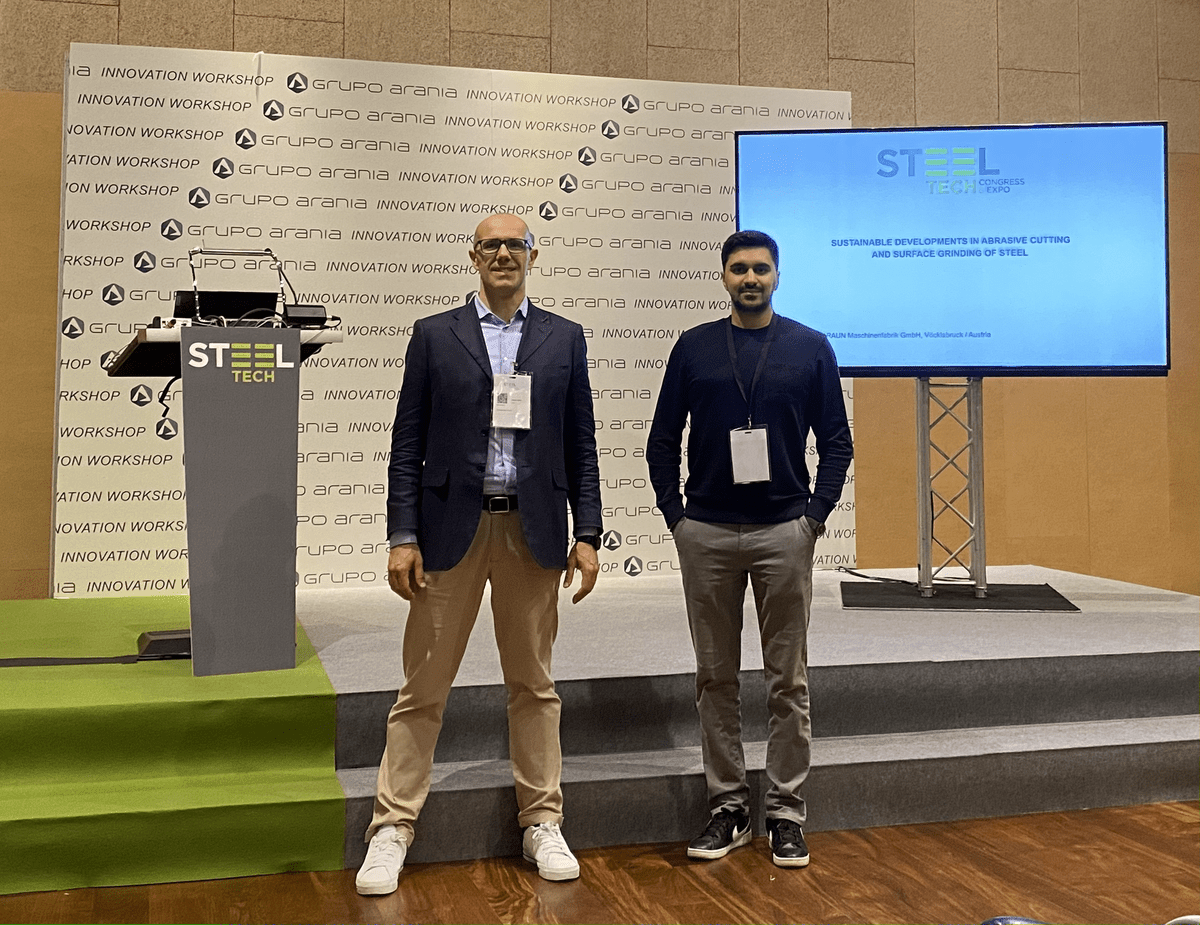In today’s fast-paced world, industries are constantly evolving and adapting to the ever-changing technological landscape. The steel manufacturing industry is no exception. The recent visit to the SteelTech Fair Trade in Bilbao (Bizkaia, Spain) was a remarkable experience for BeChained that confirmed the innovative ways in which IoT (Internet of Things) and AI (Artificial Intelligence) are being harnessed to revolutionise the steel production process.
A Day of Discovery:
The SteelTech Fair Trade, an annual event that showcases the latest developments in the steel industry, took place in an intimate, but bustling convention center. It was a gathering of steel manufacturers, technology companies, and professionals eager to explore how IoT and AI can enhance steel production. The atmosphere was charged with energy and excitement, making it the perfect setting for a day of discovery.
Meeting Steel Makers:
Our first stop was at the booths of various steel manufacturers, where we had the opportunity to engage with industry experts and learn about the latest advancements in steel production. It was inspiring to see the passion and dedication of these professionals, who work tirelessly to produce the high-quality steel. #TubosReunidos, our client, was present alongside #Sidernor, #Tatasteel, #Acerinox and other with a dedicated booth.
One particular aspect that stood out was the commitment to sustainability. Many steel makers were keen to emphasize their efforts in minimizing their environmental footprint. They showcased cutting-edge technologies for recycling and repurposing steel, demonstrating that they are fully aware of their responsibility in reducing the industry’s impact on the environment.
One of key topic was “green hydrogen”, as a new way to fuel existing fleet, currently working with natural gas, to melt scrap or metals. Unfortunately, so far it is not that viable to produce hydrogen for energy intensive industries like steel making, using renewable resources, as to call it green or blue. Rather it is cheaper from fossil fuel, so it still implies huge emissions.
IoT and AI Presentation:
The highlight of our visit was the presentation on how IoT and AI are transforming the steel manufacturing process. The speakers, some seasoned industry experts, delved into the various ways these technologies are being integrated into production lines to enhance efficiency, quality, and safety.
- Predictive Maintenance: IoT sensors are now embedded in machinery to monitor their health in real-time. AI algorithms analyze the data collected to predict when maintenance is required, reducing unplanned downtime and saving resources,
- Quality Control: AI-powered computer vision systems are used to inspect steel products for defects, ensuring that only high-quality materials reach the market. This not only saves time and money but also improves customer satisfaction,
- Process Optimization: IoT devices gather data at various stages of production, allowing for real-time adjustments to achieve optimal efficiency. AI algorithms help in decision-making, ensuring the process runs smoothly,
- Energy Efficiency: IoT and AI systems are being used to monitor energy consumption, leading to more sustainable operations and reduced costs.
The presentation made it clear that these technologies are transitioning from just buzzwords into different application in manufacturing facilities in Spain. Somehow, they are practical tools that are transforming steel manufacturing for the better.
Even so, we noticed how far behind the #AI methods used and showcased are from BeChained’s #ReinforcementLearning (multi agent) models. The industrial application of some recent papers we were inspired from, is the state-of-the-art of #DeepLearning never trained with real industrial data before.
The results, so far achieved, demonstrated:
- the high quality outcomes (either from economic and operational standpoint),
- the huge impact in terms of tCO2 avoided,
- the reliability to manage automatic decision making and shift operators to a supervisor role in production processes.
A Glimpse into the Future:
Our visit to the SteelTech Fair Trade provided a glimpse into the exciting future of steel manufacturing. The industry is embracing IoT and AI, not only to increase productivity, but also to reduce its environmental impact and improve overall sustainability.
As we left the event, we couldn’t help but be inspired by the dedication of the steel makers and the potential of technology to shape the future of this essential industry. The SteelTech Fair Trade was a testament to the power of innovation and collaboration, and it left us eagerly anticipating what the future holds for steel production.
In conclusion, the visit to SteelTech Fair Trade was a remarkable experience that highlighted the convergence of tradition and technology. It’s clear that the #steelindustry is ready to embrace the future, and with #IoT and AI, it’s poised to become more efficient, sustainable, and innovative than ever before. This event serves as a reminder that even the most established industries can evolve and adapt to the challenges and opportunities of the 21st century.





